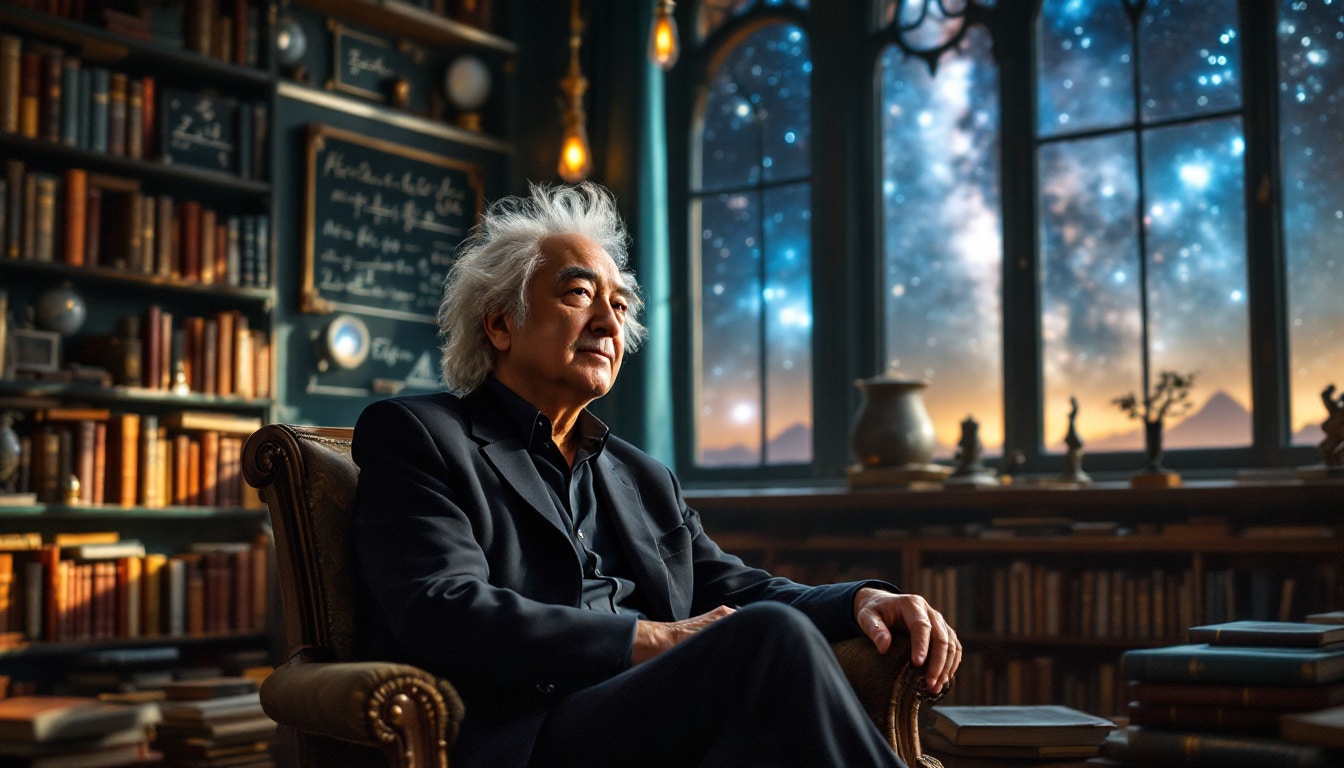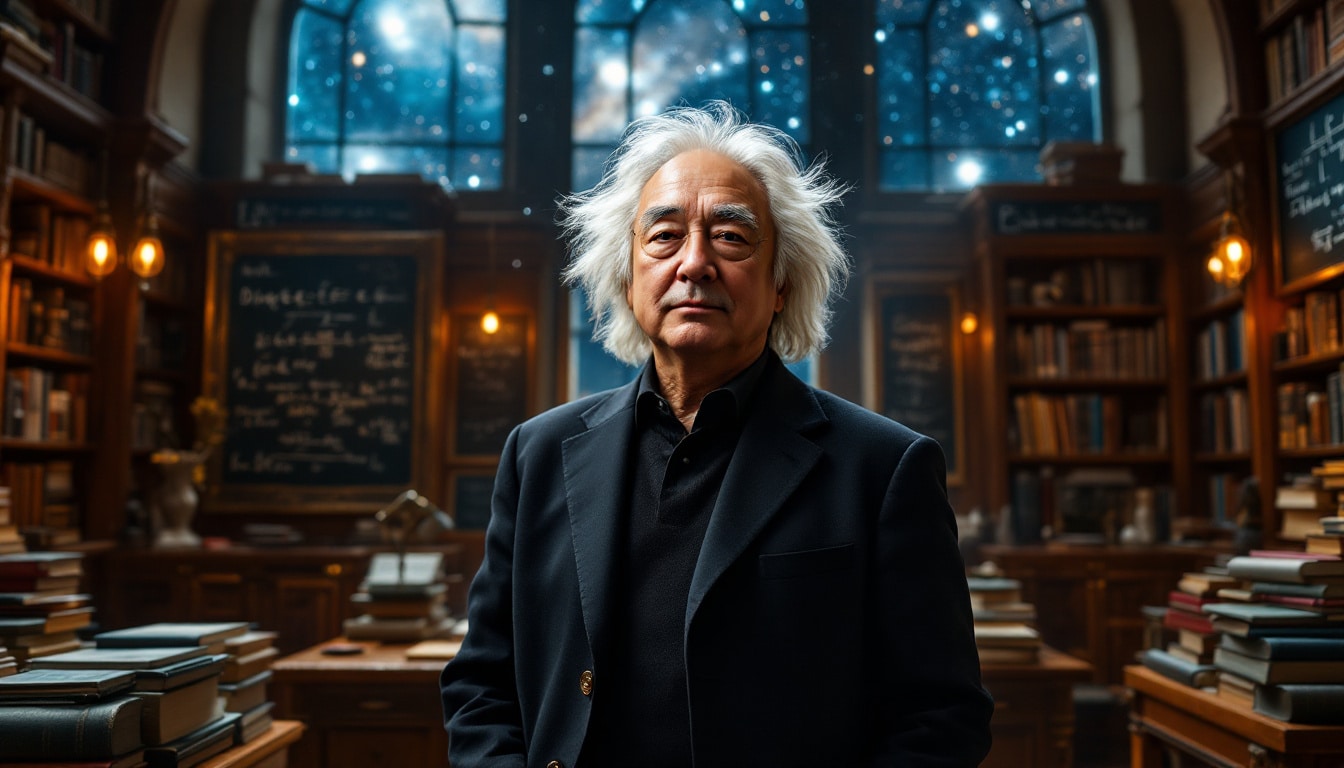Michio Kaku, born on January 24, 1947, is an American theoretical physicist, writer, and one of the most prominent science communicators of our time. His journey from building a 2.3 MeV atom smasher in his parents’ garage to co-founding string field theory highlights his deep curiosity and passion for understanding the universe. As a professor at the City College of New York, Kaku has dedicated his career to advancing our knowledge of theoretical physics and exploring how cutting-edge science can shape humanity’s future. Through numerous books, TV appearances, and radio shows, he has inspired millions with his vision of humanity’s potential to transcend current limitations, delving into topics like quantum physics, future technologies, and the longevity of our species. His work serves not only as an academic contribution but as advocacy for the responsible and innovative use of advanced technologies.
Michio Kaku, born in San Jose, California in 1947, is a trailblazer in the world of theoretical physics and science communication. As a luminary of popular science, his contributions have significantly bridged the gap between science and the general public. Along with co-authoring groundbreaking papers on string theory and quantum field theory, Kaku has dedicated his career to making complex scientific concepts accessible to everyone.
An enthusiastic advocate for advanced technologies, Kaku is widely recognized for his efforts in forecasting the future of science and technology. His best-selling books, including “Physics of the Future” and “The Future of the Mind,” offer insightful predictions on how science will shape human destiny. Moreover, his presence in various media channels, from radio programs like “Exploration” to television specials, captures the imagination of audiences worldwide by discussing revolutionary ideas such as time travel and warp drive.
Kaku’s commitment to science extends beyond academia; he is vocal in matters of global importance, actively engaging in discussions about climate change and the ethical implications of nuclear power. As a prominent voice in the scientific community, Michio Kaku continues to inspire countless individuals to explore the fascinating realms of physics and the promising horizon of technological advancements.

Table of Contents
Toggleearly beginnings and academic achievements
Born on January 24, 1947, in San Jose, California, Michio Kaku rose to prominence as a theoretical physicist, science communicator, and author. He emerged from a challenging background; both of his parents, second-generation Japanese-Americans, were interned during World War II in the Tule Lake War Relocation Center. This early exposure to significant historical events may have instilled in him a unique perspective on global issues. His passion for physics was ignited upon seeing a photograph of Albert Einstein’s desk at the time of his death, leading him to a lifelong mission to complete Einstein’s unified field theory. Remarkably, in high school, Kaku constructed a 2.3 MeV “atom smasher” using scrap metal and wire, gaining attention from renowned physicist Edward Teller and securing a scholarship to Harvard College where he graduated summa cum laude in 1968.
academic pursuits and discoveries
After Harvard, Michio Kaku continued his academic journey at the University of California, Berkeley, where he earned his PhD and held a lectureship at Princeton University. His focus was on quantum mechanics and the emerging field of string theory. By 1974, he along with Prof. Keiji Kikkawa of Osaka University, published seminal papers on string theory, introducing it in a field form that set the groundwork for further advancements. Kaku’s work spanned several decades, contributing significantly to superstring theory, supergravity, and hadronic physics. He joined the City College of New York in the physics department in 1975 and remained an active academic as the Henry Semat Chair in theoretical physics.
media presence and advocacy
Widely recognized as a popularizer of science, Michio Kaku has been integral in making complex scientific ideas accessible to the general public. His books such as “Physics of the Impossible” and “The Future of Humanity” have been New York Times best sellers. Through frequent media appearances on platforms like BBC, Discovery Channel, and more, Kaku has delved into how science and technology will shape the future of humanity. Moreover, his radio show “Exploration” and syndicated program “Science Fantastic” further his reach in spreading scientific literacy. His advocacy extends to critical global issues such as climate change, nuclear disarmament, and the exploration of space. His work emphasizes the potential of science to transform society positively and his voice remains influential in shaping public discourse on science and technology.





